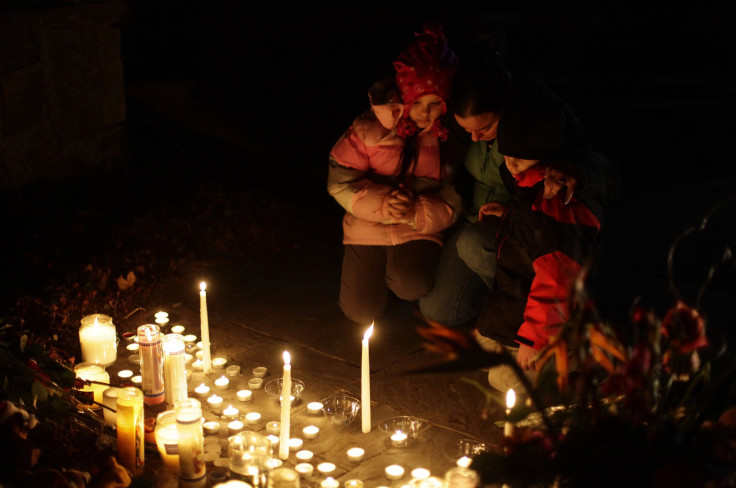Media Critics Say Sensational News Coverage Encourages Future School Shootings

As shock turned into national depression following the elementary school massacre in Newtown, Conn., Friday, it became impossible not to look inward. Parents thought of their own children and teachers their students, but on a less personal level, some in the media began to examine whether the overwhelming coverage was necessary. Some even thought, when it comes to shooting sprees, constant reporting might even be enabling.
At a news conference Sunday morning, Connecticut State Police Lt. Paul Vance said during the 48 hours since the Newtown shooting, rumors, gossip and speculation have all flown in the face of getting the story right.
“Misinformation is being posted on social media sites,” Vance said, according to CNN. “There has been misinformation from people posing as the shooter in this case, posing using other IDs. Mimicking this crime and crime scene and criminal activity that took place in this community. There’s been some things in somewhat of a threatening manner. … Prosecution will take place when people who are perpetrating this information are identified.”
Vance wasn’t blaming the media for anyone threatening to commit a copy-cat crime, but did imply the sensationalism was immoral. After a German school shooting in 2009, Charlie Booker of the BBC eviscerated Britain’s major networks for seizing on any semblance of a story or video footage and portraying it as a major break in the case.
“Isn’t the news brilliant? Repeatedly showing a killer’s face, it’s just rubbernecking,” Booker said. “Once more, this sort of coverage only sends to tell this murdering little twat into a sort of nihilistic pinup boy.”
Dr. Par Dietz, a forensic expert cited in Booker’s report, stressed the need to consider the implications of excessive media coverage. Ratings and advertising dollars are dictating news judgment, he warned.
“We’ve had 20 years of mass murders, throughout which I’ve repeatedly told CNN and our other media, ‘If you don’t want to propagate mass murders don’t start the story of sirens blaring. Don’t have photographs of the killer. Don’t make this 24/7 coverage. Do everything you can not to make the body count the lead story and not to make the killer some kind of anti-hero.
“Do localize this story to the affected community and make it as boring as possible in every other market. Because every time we have intense saturation coverage of a mass murder, we expect to see two or three more within a week,” Dietz said.
It’s advice that’s easy to agree with, but hard to follow. After the Newtown school shooting every news website had the headline splashed across the front page, often in blood-red type. It’s obviously news, although it's not quite right when the mass killers become household names while it’s hard to think of a single specific victim.
Yellow journalism is nothing new. Middle school students learn about the early 20th century rivalry between Hearst and Pulitzer. Now, with many people more comfortable on their computers instead of social situations, the consequences seem much more dangerous.
Roger Ebert told a story of his own experience in a rumination on the 2003 movie, “Elephant,” by Gus Van Sant, a fictionalization of a Columbine-like high school shooting. He was speaking with a reporter when it was clear the journalist was more motivated to tell her own story than the truth. Ebert responded by telling her it’s much easier for someone to be influenced into killing their fellow students by envisioning news anchors dissecting his every move, than by violent movies.
“The reporter looked disappointed, so I offered her my theory,” Ebert wrote almost 10 years ago. “‘Events like this,’" I said, "if they are influenced by anything, are influenced by news programs like your own. When an unbalanced kid walks into a school and starts shooting, it becomes a major media event. Cable news drops ordinary programming and goes around the clock with it. The story is assigned a logo and a theme song; these two kids [Eric Harris and Dylan Klebold] were packaged as the Trench Coat Mafia.
“‘The message is clear to other disturbed kids around the country: If I shoot up my school, I can be famous. The TV will talk about nothing else but me. Experts will try to figure out what I was thinking. The kids and teachers at school will see they shouldn't have messed with me. I'll go out in a blaze of glory.’"





















